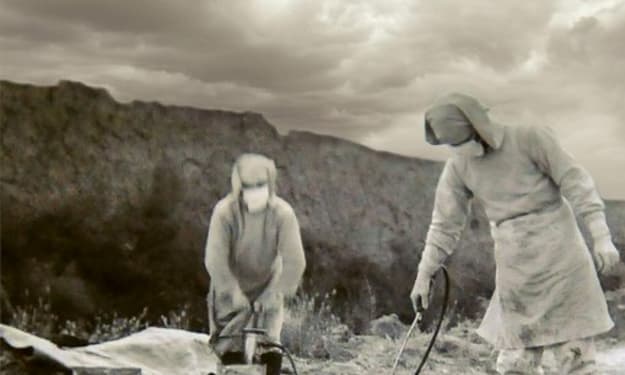
The Evolution and Challenges of Hip Hop: A Quest for Originality
Hip hop, once a vibrant and revolutionary force in the music industry, has experienced a noticeable shift over the decades, particularly since the 1990s. What began as a genre rooted in creativity, authenticity, and social commentary has, for many, devolved into a landscape dominated by clones and predictable formulas. This transformation has left many enthusiasts questioning the direction and soul of hip hop today.
Hip Hop's Golden Era and Evolution
In its infancy during the late 1970s and early 1980s, hip hop was a cultural phenomenon born from the streets of New York City. Artists like Grandmaster Flash, Afrika Bambaataa, and Run-D.M.C. pioneered a sound that blended rhythmic beats with poetic lyricism, reflecting the social and political realities of urban life. The genre quickly evolved, giving rise to icons like Public Enemy, N.W.A., and A Tribe Called Quest, who used their platforms to address issues of race, inequality, and identity.
The 1990s are often regarded as the golden era of hip hop. Artists such as Tupac Shakur, The Notorious B.I.G., Wu-Tang Clan, and Nas emerged, each bringing their unique styles and narratives to the forefront. This era was characterized by diverse sounds, innovative production techniques, and a lyrical prowess that elevated hip hop to new heights of cultural relevance and artistic expression.
The Rise of Commercialization and Cloning
However, as hip hop gained mainstream popularity and commercial success in the late 1990s and early 2000s, a shift began to occur. Major record labels, eager to capitalize on the genre's profitability, started to prioritize marketability over artistic integrity. This shift led to the promotion of artists who adhered to a formulaic approach: catchy hooks, simplistic lyrics, and commercially appealing beats.
The proliferation of these commercial tactics gave rise to what many critics and purists perceive as the era of clones in hip hop. Artists who mimicked successful formulas became prevalent, flooding the airwaves and streaming platforms with repetitive content. The emphasis on sales and chart performance overshadowed the genre's roots in innovation and social commentary, leaving little room for experimentation and risk-taking.
The Role of Major Record Labels and Radio Programming
Central to the homogenization of hip hop is the role played by major record labels and radio stations. Record executives, driven by profit margins and market trends, began to exert significant influence over artist development and creative direction. Talented artists who didn't conform to commercial expectations often struggled to secure contracts or receive adequate promotion, relegating them to the margins of the industry.
Radio programming further exacerbated this trend. Many mainstream stations, controlled by corporate conglomerates, adopted playlists that heavily favored a select few artists and tracks. This practice, known as playlist manipulation, effectively limited listener choice and exposure to a narrow spectrum of hip hop music. As a result, casual listeners found themselves inundated with the same handful of songs on repeat throughout the day.
The Shift to Alternative Platforms and Streaming Services
Frustrated by the lack of variety and originality on traditional radio, hip hop fans began to seek alternative outlets for discovering new music. Satellite radio, online streaming platforms like Spotify and Apple Music, and independent radio stations emerged as havens for listeners craving diversity and authenticity.
These alternative platforms offered curated playlists, underground shows, and podcasts that showcased emerging artists and overlooked talents. They provided a platform for experimental sounds, conscious lyrics, and diverse perspectives that were often marginalized by mainstream media and record labels. As a result, artists who didn't fit the mold of commercial success found opportunities to connect directly with audiences who appreciated their authenticity and creativity.
The Resurgence of Underground and Independent Movements
Amidst the commercialization and homogenization of hip hop, a resurgence of underground and independent movements has emerged as a beacon of hope for the genre's authenticity. Artists and collectives like Kendrick Lamar, J. Cole, Chance the Rapper, and Run the Jewels have garnered critical acclaim and commercial success while maintaining artistic integrity and challenging societal norms.
These artists often self-produce their music, maintain creative control over their content, and prioritize storytelling and social commentary over commercial appeal. Their success has proven that there is still a demand for thought-provoking lyrics, innovative production, and authentic storytelling in hip hop.
The Future of Hip Hop: Navigating Commercial Pressures and Artistic Vision
As hip hop continues to evolve in the 21st century, it faces a critical juncture. The tension between commercial pressures and artistic vision persists, challenging artists, fans, and industry stakeholders to redefine the genre's trajectory. While commercialization has brought hip hop unprecedented visibility and financial success, it has also diluted its cultural impact and artistic diversity.
Moving forward, fostering a balance between commercial viability and artistic authenticity will be crucial. Empowering independent artists, supporting underground movements, and advocating for diverse representation in mainstream media are essential steps toward preserving hip hop's legacy as a platform for social commentary, cultural expression, and artistic innovation.
In conclusion, while the commercialization of hip hop has led to a proliferation of clones and predictable formulas, the genre's resilience lies in its ability to adapt, innovate, and challenge conventions. By embracing diversity, supporting independent voices, and prioritizing artistic integrity, hip hop can reclaim its position as a dynamic force for social change and cultural evolution in the music industry.
About the Creator
Enjoyed the story? Support the Creator.
Subscribe for free to receive all their stories in your feed. You could also pledge your support or give them a one-off tip, letting them know you appreciate their work.






Comments
There are no comments for this story
Be the first to respond and start the conversation.